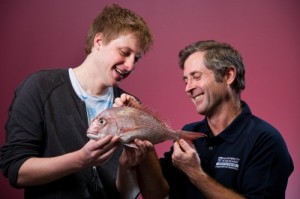Q: So, have you seen the article about Vitamin D and diabetes?
A: Of course. The tireless staff of StatsChat read even West Island newspapers. It’s a good report, too.
Q: What did the researchers do?
A: They studied 5200 people without diabetes, following them up for five years. 199 of them developed diabetes. The people who ended up with diabetes started off with lower vitamin D levels in their blood.
Q: Where did you get those details?
A: The abstract for the study publication (you can also get the full text there free if you’re at a university or if you wait until next year).
Q: Isn’t it annoying that newspaper websites don’t provide any links to that sort of information?
A: It’s like you’re reading my mind.
Q: One of the study authors is quoted as saying “”It’s hard to underestimate how important this might be.” What do you think?
A: I think he meant “overestimate”.
Q: So, how important is this finding?
A: If it really is an effect of vitamin D, it would be really important. A simple supplement would be able to dramatically reduce the risk of diabetes.
Q: How can we tell?
A: Someone needs to do a randomized trial, where half the participants get vitamin D and half get a dummy pill. If the effect is real, fewer people getting vitamin D will end up with diabetes.
Q: That sounds like a good idea. Is someone doing a trial?
A: Yes, Professor Peter Ebeling, of the the University of Melbourne.
Q: Is there some useful website where I can find more information about the trial?
A: Indeed.
Q: Will it work?
A: No.
Q: Are you sure?
A: No, that’s why we need the trial. But it’s a trial of vitamin supplementation, which almost always has disappointing results, and it’s a trial in adult-onset diabetes, which almost always has disappointing results.

